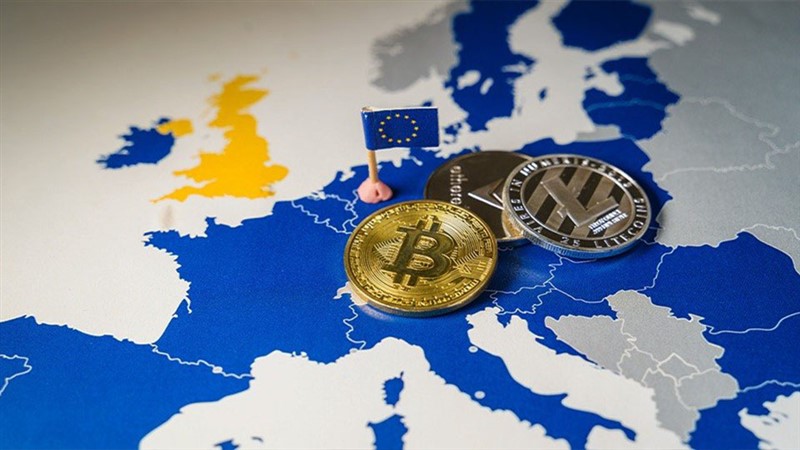2023.03 The Taiwan Banker NO.159 / By Matthew Fulco
Will Europe's MiCA be a game changer for cryptocurrency?Banker's Digest
At a minimum, the new legislation will make transacting in digital assets more transparent and predictable in the European Union – with important implications for Taiwan The European Union (EU) has been working on comprehensive digital assets regulation for several years, the first of its kind globally. Known as the Markets in Cryptoassets (MiCA) directive, it will regulate the cryptocurrency sector with common rules across all 27 member states, including restrictions on the issuance and use of stablecoins. MiCA is part of a broader push by the EU to regulate digital finance more like it does the traditional financial services sector. Related legislation includes the Digital Operational Resilience Act (DORA) and the DLT Pilot Regime Regulation, which comes into effect in late March. The European Parliament had been scheduled to vote on MiCA in February, but voting has reportedly been pushed back to April due to the considerable time it takes to translate the rules into the EU’s 24 official languages. "MiCA is tabled to be voted by the plenary in April and to my knowledge, the delay is technical, caused by translating issues,” an official with knowledge of the matter told CoinDesk in January. If MiCA’s proponents are right, the legislation will dramatically improve the quality of the digital assets ecosystem in Europe by bringing cryptocurrency from the quasi-underground to the financial services mainstream – or close to it. Once it goes into effect, MiCA will classify crypto in three categories subject to different regulation based on their underlying risk: electric money tokens (EMTs), asset-referenced tokens (ARTs) – both of which are variants of stablecoins – and all others. The “others” will include non-pegged payment tokens like bitcoin. Following the collapse last November of FTX, once a US$32 billion exchange, the EU had new impetus to implement MiCA. Some officials argued that comprehensive regulation could have prevented such a crisis from occurring. “Under the MiCA regime, no company providing crypto assets in the EU would have been allowed to be organized, or perhaps I should say disorganized, in the way FTX reportedly was,” Alexandra Jour-Schroeder, deputy director general at the European Commission’s financial-services arm, said in November, shortly after the once-massive exchange imploded. Possible shortcomings The EU should be commended for its efforts to develop a robust and enduring regulatory framework for digital assets. It is almost certain that the benefits of the legislation will outweigh its drawbacks, and it may even set a standard for crypto rulemaking globally. That said, MiCA has a few potential problem areas worthy of note. One was identified by CoinDesk in late 2022: that while the legislation requires companies targeting the EU market to register with a local regulator, certain exemptions exist that could be exploited. Notably, if a company based outside the EU provides relevant crypto-asset services at the "own exclusive initiative" of a customer residing within the bloc, that company does not have to obtain authorization under MiCA. Similar provisions exist under the EU’s Markets in Financial Instruments Directive 2014 (MiFID II). The scenario, known as “reverse solicitation,” exists for practical reasons. It is not easy for regulators to control how companies and individuals in the EU engage with overseas crypto firms and a blanket ban on such activity like China has implemented is not the answer. EU officials say that the risk of reverse solicitation being abused could be mitigated if other jurisdictions adopt similar regulations to MiCA. That sounds reasonable, but easier said than done. It is far from certain whether other countries will follow the MiCA model. Implications for Taiwan While MicA’s full impact may not be felt for years to come, the legislation nonetheless suggests that comprehensive regulation of digital assets could become a major global trend. With the EU taking this step, Taiwan should consider speeding up its own regulation of digital assets, which to date has been extremely limited and focused on preventing money laundering. In reality, money laundering risks are one very small part of the overall cryptocurrency story, and for Taiwan’s purposes, not especially significant. Instead, regulators should turn their attention to tax evasion by Taiwanese who have made crypto fortunes. Commonwealth Magazine noted in a report last July that many Taiwanese report crypto trades as “overseas income” due to the NT$6.7 million tax-free allowance per year. “For many of those people with over NT$100 million in cryptocurrency assets, this can save them 50% over the general income tax rate of 40% in their higher tax bracket,” the article noted. The EU plans to supplement MiCA with a tax transparency law called DAC 8 that would require all service providers facilitating crypto-asset transactions for EU customers to report those transactions. DAC 8 would cover domestic and cross-border transactions as well as nonfungible tokens (NFTs) in some cases. Because cryptocurrency remains something of a novelty in Taiwan, a speculative emerging asset class removed from the domestic banking system with a limited following, regulators may have previously felt no urgency to enact thorough regulations. However, the collapse of FTX illustrated that even a country with seemingly limited exposure to crypto could be adversely affected by the industry’s big failures. When FTX imploded, about 950 people in Taiwan had digital assets worth US$150 million stored on the exchange, according to the Taiwanese law firm Enlighten Law Group. The law firm also said that four unnamed individuals lost more than US$5 million each. In January, the Financial Supervisory Commission (FSC) mooted several possibilities for regulation of digital assets, including having banks supervise crypto transactions with the know-your-customer (KYC) process. Another possibility mentioned was self-regulation through crypto unions. However, “we must determine the classification of digital assets and their legal characteristics before going forward with any regulations,” FSC Chairman Huang Tien-mu said at a Lunar New Year Press Conference. Looking ahead, Taiwan should actively solicit the opinions of leading industry practitioners as it works to classify and regulate digital assets, and incorporate their input into regulations. Knowledge of this new and fast-evolving industry is limited in the country’s traditional financial institutions, which have historically kept their distance from cryptocurrency, and they are not currently equipped to take a leading role in related regulation.


